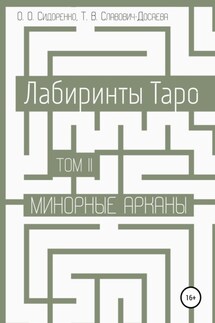Aryans and We - страница 5
This brings up the question: if we are only these bodies, then why are we striving for eternity? Be that, our consciousness would indifferently refer to the idea of disappearance like the dead (inanimate) matter. Why do we resist the idea of disappearance? Why did the Mother Nature (of course, if it was its initiative) have to give us temporary bodies and the desire of eternal existence? Where do these contradictions between our desires and capabilities come from?
Everything in the material world is imperfect because it is temporary. Nothing that is temporary can ensure in contact the perfect happiness which we are so striving for. Where from do we take this strive for continuous happiness? In fact, we do not stop to desire happiness even a single second. It never happens that a living being in the material world is looking for sufferings! On the other hand, though, in this world no living being has got the experience of such happiness. Where do we take such striving from? And why can’t any amount of suffering and disappointment make us stop to desire happiness? A comprehensive consideration of the given questions shows that striving for continuous happiness is the integral part of consciousness (i.e. life) irrespective of conditions of material body.
Our senses are so limited and imperfect that actually no one can tell which portion of truth related to the external world they might convey. For instance, the Sun seems to us the circle with the size of a simple coin but actually it is huge. Similarly, we are not able to hear certain sound frequencies, not able to see subtle energies, etc. Our body, therefore, is a very fragile and imperfect data transfer instrument, but our consciousness always strives to be knowledgeable about everything going on around us.
Having investigated the strivings coming from consciousness and having become convinced of their full contradiction with the abilities of the body, the Vedas came to the conclusion that consciousness (life) was not the integral part of the body (the dead matter). The Vedas put forward the idea of the soul, namely of an element which differentiates an alive body from a dead one and which is the carrier of consciousness. At a time when soul leaves body, the latter becomes the harmonic part of the nature (a corpse) with no any contradiction of it. A dead body like matter in general is absolutely indifferent to whatever is done to it. It has no more strivings for happiness, existence or knowledge. Consequently, it is vitally important to study the nature and the psychology of soul as only knowledge of its nature and understanding of its needs can resolve all differences in what is called “life”. In return, when the idea of soul is accepted, it means to answer such questions as:
1) What are the nature and characteristics of soul?
2) How did soul appear in the material world?
3) Where is its true home?
4) How can one return there?
To be fair, it should be noted that no other religious or philosophical concept in the world than the Aryans’ has got a more complete system of answers on the given questions. It is likely the reason why it has got a close attention of great minds of all times ever.
Now, according to the Aryan concept, if a living being is a spiritual parcel which is striving within us to eternity (as it is eternal), happiness (as it is blissed) and knowledge (as the knowledge is its integral part), consequently there should be the world where it possessed all these. Otherwise, where do all its strivings come from? And why did the nature endowed us with qualities which are absolutely unused in this world? A living being cannot strive for anything which is not known by it. Everything we are striving for is the proof that we are aware of it.






